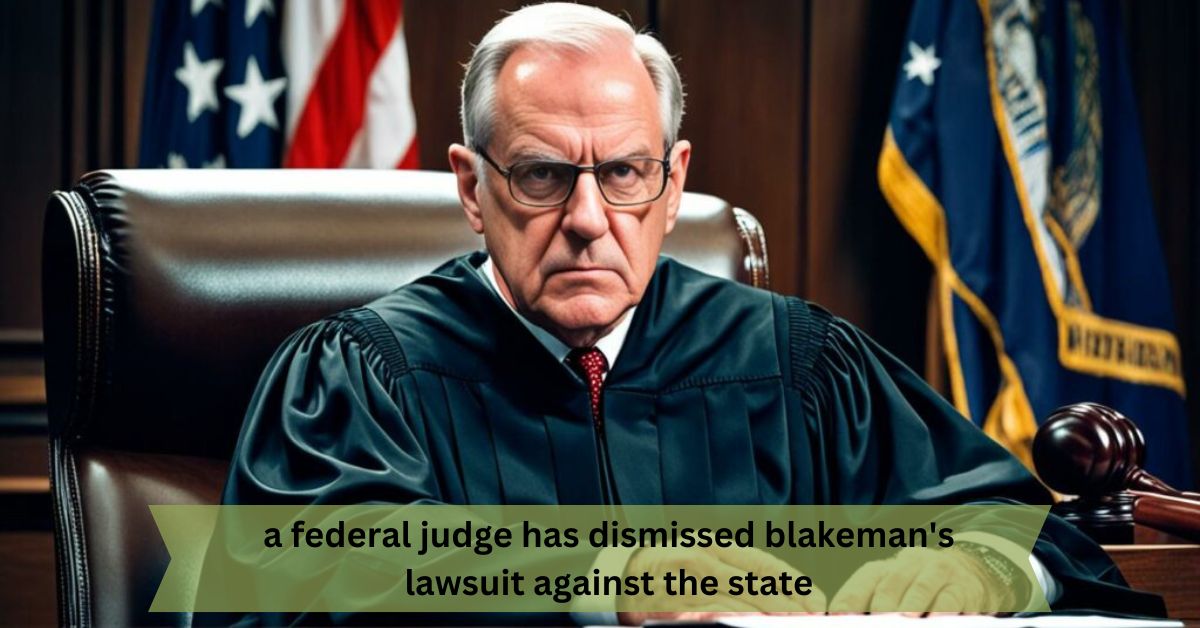In recent news, a significant legal development occurred when a federal judge dismissed Blakeman’s lawsuit against the state. This ruling is critical, not only for Blakeman but also for understanding the implications of executive orders and their legal standing.
In this article, we will delve deep into the a federal judge has dismissed blakeman’s lawsuit against the state details surrounding this lawsuit, its background, and what it means for similar cases in the future.
Understanding the Context: Who Is Blakeman?
To understand the lawsuit, we first need to know who Blakeman is. Bruce Blakeman, the Nassau County Executive, has been a prominent figure in local politics.
His executive orders, especially those issued in February, have garnered attention and sparked debates. The lawsuit he filed against the state sought to protect his authority and assert the legality of his actions.
The February Executive Order: A Closer Look
Blakeman’s February executive order was aimed at addressing certain public health and safety measures. While details about the specific provisions of the order can vary, it generally focused on how local governments could respond to ongoing health concerns.
This order was contentious, drawing criticism from various quarters, including state officials who felt it overstepped the bounds of state authority.
The Lawsuit: Key Details and Allegations
Blakeman’s lawsuit against the state was filed in response to the perceived threats to his executive powers. He claimed that the state was infringing upon his rights and authority to govern at the local level.
The central arguments in the lawsuit revolved around the interpretation of state versus local powers and the legal grounds on which a federal judge could intervene.
Grounds for the Dismissal
On April 12, the federal judge dismissed Blakeman’s lawsuit against the state, citing several reasons:
- Lack of Jurisdiction: The court found that it did not have the jurisdiction to hear the case, indicating that the matter should be resolved at a different level of the legal system.
- Precedent: The ruling also referenced previous cases where local executives faced similar challenges, suggesting that Blakeman’s arguments were not unique or compelling enough to warrant a different outcome.
- Legal Standing: The judge ruled that Blakeman did not have sufficient legal standing to pursue the lawsuit, which is a critical requirement in any legal proceeding.
Implications of the Ruling
The dismissal of Blakeman’s lawsuit against the state carries significant implications for local governance and executive authority.
Local vs. State Authority
One of the most pressing issues highlighted by this case is the ongoing struggle between local and state authority. Local executives like Blakeman may feel empowered to enact changes quickly, especially in response to health crises.
However, this ruling reinforces the idea that state laws and regulations can supersede local measures when they conflict.
Future Lawsuits
The dismissal of Blakeman’s lawsuit against the state could set a precedent for future cases. Local officials considering similar legal actions may think twice, knowing the challenges they face in court.
The ruling serves as a reminder that legal battles are often complex and that executive orders, while powerful, are not immune to scrutiny.
The Legal Landscape: What Comes Next?
In the aftermath of this ruling, several questions arise about the future of local governance and executive orders.
Will Blakeman Appeal?
While the details are still unfolding, there is speculation about whether Blakeman will seek to appeal the decision. An appeal could prolong the legal battle and draw more public attention to the issues at hand. However, given the challenges highlighted by the judge, an appeal might not yield a different result.
Reassessing Executive Orders
In light of this ruling, local executives may need to reassess their approach to issuing executive orders. Blakeman’s case could serve as a cautionary tale for others in similar positions. It underscores the importance of ensuring that local actions align with state laws to avoid legal challenges.
The Role of the Judiciary
This case emphasizes the judiciary’s role in balancing local and state authority. Courts are tasked with interpreting laws and ensuring that executive actions adhere to legal standards. As such, this dismissal reinforces the checks and balances inherent in the U.S. legal system.
Frequently Asked Questions
1. What does it mean that a federal judge has dismissed Blakeman’s lawsuit against the state?
The dismissal means that the court found Blakeman’s claims insufficient to warrant a legal case. It indicates that the legal system determined the matter did not meet the necessary criteria for federal court intervention.
2. What are the potential consequences for Blakeman?
As a result of this ruling, Blakeman may have to reconsider his approach to executive orders and how they align with state laws. The dismissal could also affect his political standing and credibility.
3. Can Blakeman appeal the decision?
Yes, Blakeman has the option to appeal the decision, but it remains to be seen whether he will pursue that route.
4. How does this ruling affect other local officials?
This ruling may deter other local officials from pursuing similar legal actions, knowing the challenges they could face in court.
5. What are the implications for future executive orders?
The ruling may lead to more scrutiny of executive orders at the local level, prompting officials to ensure their actions comply with state regulations.
Conclusion:
The ruling in the case of “a federal judge has dismissed Blakeman’s lawsuit against the state” has far-reaching implications for local governance, executive authority, and the legal landscape. It underscores the complex interplay between state and local powers and highlights the judiciary’s critical role in maintaining the rule of law.



